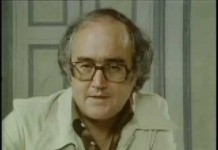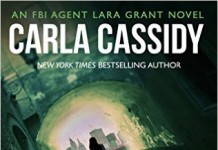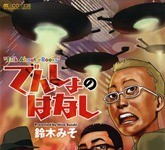 Scott Rosenberg, late of Salon Magazine, has an interesting post on his blog, Wordyard. It is actually a rebuttal to another post by Nicholas Carr depicting hyperlinking as a bad, confusing thing. Rosenberg points out that Carr is actually conflating two different forms of linking in his rant: the artistic and the pragmatic.
Scott Rosenberg, late of Salon Magazine, has an interesting post on his blog, Wordyard. It is actually a rebuttal to another post by Nicholas Carr depicting hyperlinking as a bad, confusing thing. Rosenberg points out that Carr is actually conflating two different forms of linking in his rant: the artistic and the pragmatic.
Artistic hyperlinking is predicated on creating an artistic work in segments with links that lead to different parts of the work. An example might be a “Choose Your Own Adventure” book. Pragmatic hyperlinking uses links as footnotes and references, demonstrating where information comes from and where they can learn more. Carr, Rosenberg says, rails against the pragmatic hyperlinking upon which the web is built using arguments predicated on the confusing nature of artistic hypertext works.
Links, Rosenberg says, can be confusing at first, or if used to excess, but judicious linking is not the impediment to understanding that Carr claims it is.
If your experience matches mine, then today, your eyes pass over a link. Most often you ignore it. Sometimes, you hover your mouse pointer to see where it goes. Every now and then, you click the link open in a new tab to read when you’re done. And very rarely, you might actually stop what you’re reading and read the linked text. If you do, it’s usually a sign that you’ve lost interest in the original article anyway. Which can happen just as easily in a magazine or newspaper — where, instead of clicking a link, we just turn the page.
Rosenberg’s post is the first in a three-part series. Carr responds to Rosenberg’s points (and Rosenberg replies in turn) in the comments below it.
My own linking strategy for the stories I write in TeleRead is to link (of course) the source of the story, and where I found the story (since it’s courteous to give credit where credit is due). Beyond that, I will occasionally link informational pages, especially from Wikipedia. And if I happen to remember that we covered a related  story before (such as this story on the BBC’s linking policy, or this one on NPR’s), I’ll throw those links in, too. (Often I include two or three links to past stories per article.)
story before (such as this story on the BBC’s linking policy, or this one on NPR’s), I’ll throw those links in, too. (Often I include two or three links to past stories per article.)
Links are the building blocks of the web. And while sometimes they can lead to rampant seeking behavior (as in the case of Wikipedia or TVTropes), they mostly serve as a way to become better informed about the stories we read online. And I think that’s a good thing.

































Fascinating discussion: thanks, Chris, for this piece and your comments. The links in your articles are well-chosen and useful.
I appreciate Rosenberg’s efforts to develop and to promote good linking practices — the web would improve if that would happen. Yet overall, I’m taking sides with Nicholas Carr here, for two reasons.
First, in Rosenberg’s comment that replies to Carr’s comment, Rosenberg writes: “If it is a well-chosen link, the information is as valuable as any other piece of information in the text.”
When talking about “commentary” (for example, all Twittered tweets, and most blog posts that reflect briefly on news stories) then we do need a link to the article being discussed. And that article is at least as valuable as the commentary.
But for “original” writing — novels, stories, essays, articles — I can’t agree with that. If explanation is needed, then the writer did not do her/his job. That idea — that extra information is needed — is not good writing as I understand it, and try to practice it. Whether it’s writing on paper (where no links are possible) or on the Web, you’ve got to get all the essentials into the piece itself. The links (when well done) might be useful but are not essential.
There’s another problem with Rosenberg’s idea, about the material linked to: if that also contains links, then are those links also “as valuable”? … Then –in order to get the information we need — we might be clicking link after link after link, with no end in sight until the Mets win the World Series.
The second reason that I prefer Carr’s slant is that Carr is tackling a much larger problem than mere efficiency. Carr’s book (“The Shallows”) is about the way we overuse and misuse the Internet. All these hours we are giving up in front of screens is affecting the neural connections in our brains. Our brains are being changed, and our ability to concentrate and pay attention is diminishing.
This significant transformation, which hardly seems possible, is the personal equivalent of global warming in the mind.
One can quibble about various details; many technologists just don’t want to hear that what they are doing 24/7 might be harmful. Carr, in his book and articles, is helping us to face this inconvenient hi-tech truth.
Carr is not a Luddite — far from it — and (I believe) he is not against all links. He is pointing to the practice of linking as one aspect of our modern lifestyle that consumes us by constant interruptions and distractions, and makes it difficult for us to practice deep reading, full attention and mindfulness.
I agree with Carr and Rosenberg on this point: more studies are needed.
Michael Pastore
50 Benefits of Ebooks
(new edition Sept.8)
Good article and discussion. Hyperlinks are indeed wonderful. But an article or piece of writing should stand on it’s own merits without the need to follow them. They should only be there to offer additional resources or references. I have no problem with them being inserted in the text of the work. I don’t believe Carr’s assertions about diminishing one’s attention for a minute.
Mr Carr’s “The Shallows” is – I was going to say ‘ not worth the paper it is printed on’ but that would be just silly – a complete load of ¢¡€#¢§ˆand god help any idiot who pays to read it.